17, July 2024
Kumbo: Nso people warn Bishop George Nkuo against adulterating their culture 0
In a strongly-worded letter addressed to the Bishop of Kumbo in Cameroon’s North West region, the Nso Cultural and Development Association, NSODA, have warned the Catholic Church against adulterating their culture “in the guise of inculturation.”
Social media has in recent days been inundated with videos of some of the most dreaded and sacred masquerades of the Nso people displaying in churches and church premises in Kumbo Diocese, all in the name of inculturation.
The displays have angered the people of Nso – one of the largest clans in Cameroon’s North West region.
NSODA – an association dedicated to the socio-cultural development of the Nso people – has expressed dismay at what they consider is an erosion of their culture.
“We have not been oblivious to the efforts your Diocese has been making to the development of the Nso Kingdom, and the evangelization works that have been shaping our society,” writes NSODA President, Tadze Adamu Mbiydzela, in a June 4 letter addressed to the Bishop George Nkuo of the Kumbo Diocese.
“We remain indebted and sincerely grateful to your Lordship,” the letter states, before expressing anger at the displays of their sacred masquerades in Church premises.
Mbiydzela complained that the very idea of inculturation has been “wantonly and severely abused” by Catholics.
“The avalanche of those abuses inundated social media with shocking desecration of our culture and tradition,” he writes.
“A few instances which have caught our attention are moot shows in the Church or Catholic premises of our highly cherished sacred masquerades,” the letter states.
“We are totally dismayed that if care is not taken to protect our cultural heritage, which is our identity, then, with the passage of time, our culture will be completely eroded in the guise of inculturation,” he complains.
He explained that the Nso body polity “is built from her cultural heritage which, if not seriously protected, shall be lost, and Nso as a kingdom be eroded into an irretrievable abyss.”
“It therefore behooves us to strongly denounce to your Lordship these provocative moot displays of our culture on Catholic premises and elsewhere under the guise of inculturation,” the statement continues.
NSODA thus urged the bishop to “caution and counsel Catholic Christians or whoever is under your diocese to consequently refrain from those moot displays of our cultures in the name of inculturation.”
They threatened court action should those moot displays continue.
The Bishop of Kumbo did not reply to Crux’s request for comment, but Father Humphrey Tatah Mbuy, the spokesperson for the Cameroon Bishops’ Conference told Crux that Cameroon “has not even started inculturation.”
“We are at the stage of accommodation and adaptation,” he said.
He said adaptation means adapting to what exists, and noted that bringing masquerades to Church should have been predicated on a number of critical questions: What do those masquerades mean in the Nso culture and how would they help Christians become better Christians.
He said inculturation doesn’t mean bringing anything to Church, or singing any songs. Yet, some of the songs which unfortunately are being sung in Church have nothing to do with praising God. He said successful inculturation will require the expertise of anthropologists to ensure that whatever cultural approaches are used align to the fundamental principles of the Gospel.
Nathan Chase, an assistant professor of theology at the Aquinas Institute of Theology in St. Louis, Missouri, explains that inculturation, and liturgical inculturation, was a key part of the early Church but one that always provoked disagreements.
“Paul, for instance, argued about whether the Gentiles could be Christians. Justin Martyr argued that Greek philosophy could be used to describe the Christian faith. In every case, those in favor of inculturation, rather than those against it, won the argument,” he told Crux in an earlier interview.
“The Gentiles became Christians; Greek philosophy not only was used to describe the Christian faith, but would become central to the formation of the creeds in the fourth century. The early Church always accommodated itself to the cultures in which it was celebrated. Particular liturgies were developed in North African, where there was a strong Berber presence, Egypt, Nubia, and Ethiopia. Many of these were Hellenized African cultures, but still ones that were native to Africa. I would say the early Church actually was very responsive to other cultures. This broke down in the medieval period,” Chase said.
He said religion and culture are inherently connected, noting that Jesus was a Jew, while many of the early Christians were Greek.
“The fingerprints of Jewish and Greek culture are all over the Church. The issue is not whether they are connected, but how they should relate to one another. They must always be mutually informing one another, learning from one another, and at times critiquing one another. This is what is key: that they be in critical dialogue with one another,” he said.
Source: Crux
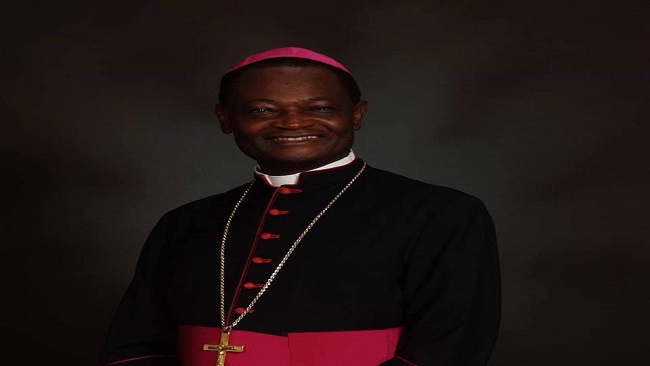
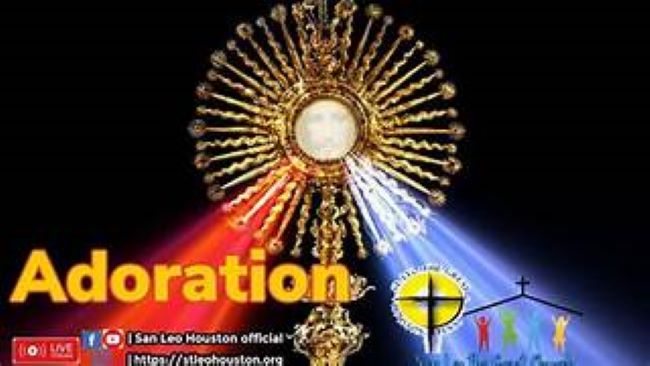














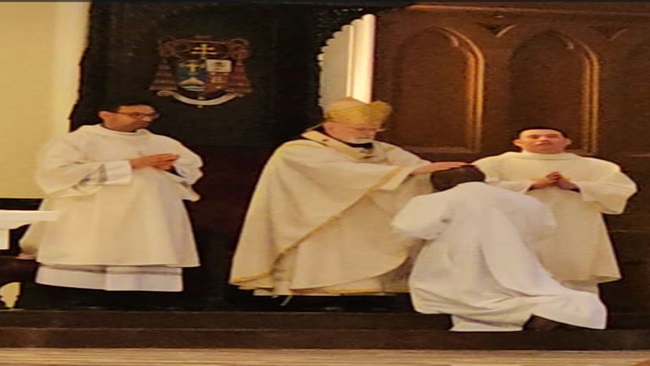

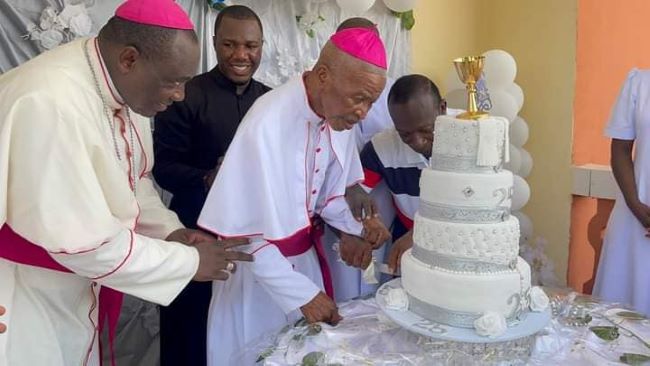
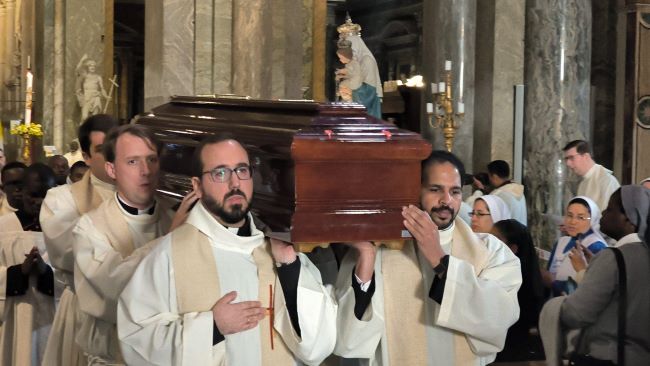
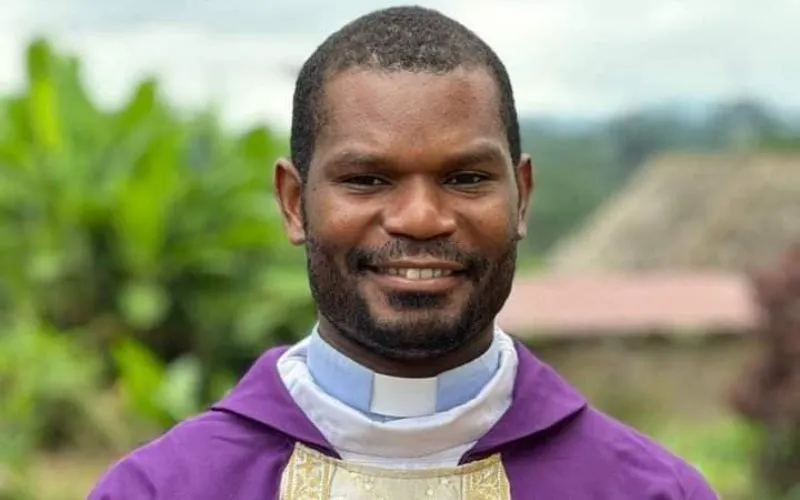
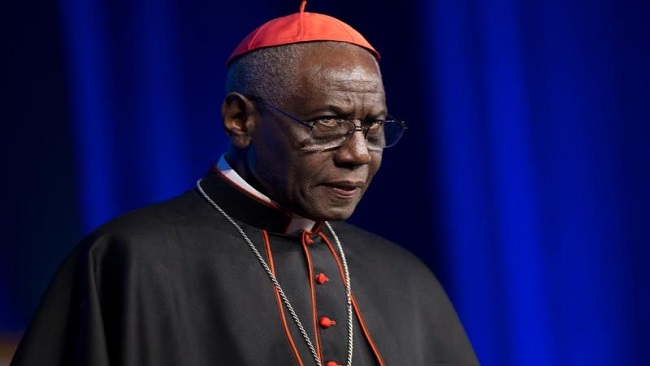
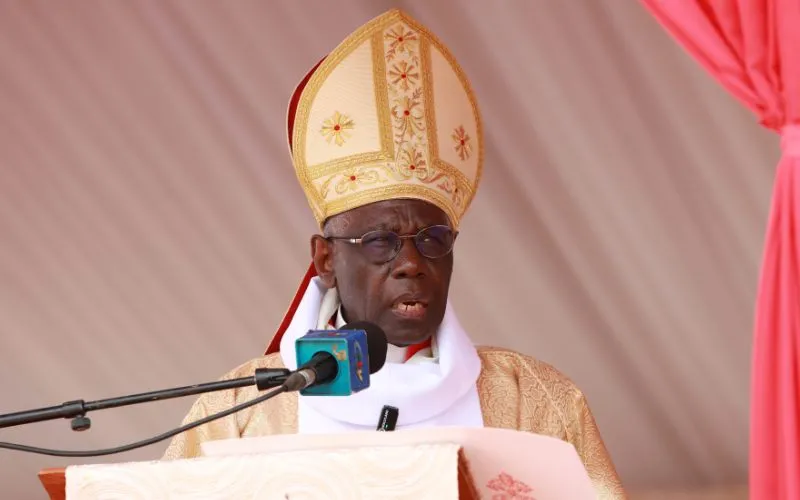 Credit: ACI Africa
Credit: ACI Africa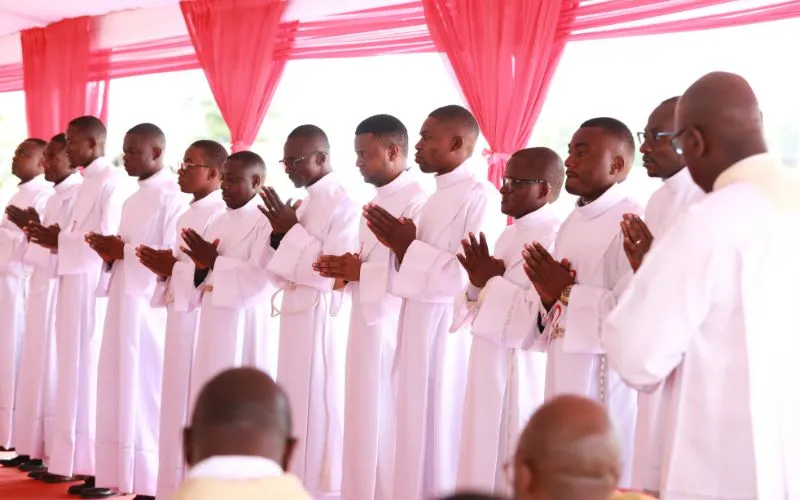 Credit: ACI Africa
Credit: ACI Africa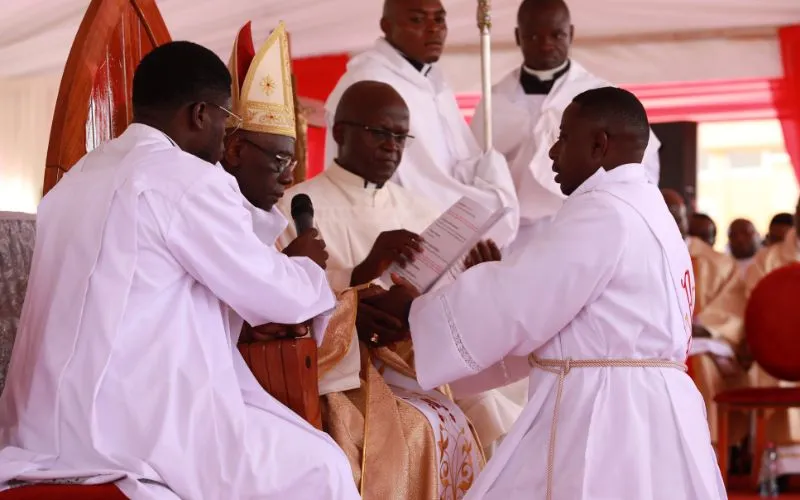 Credit: ACI Africa
Credit: ACI Africa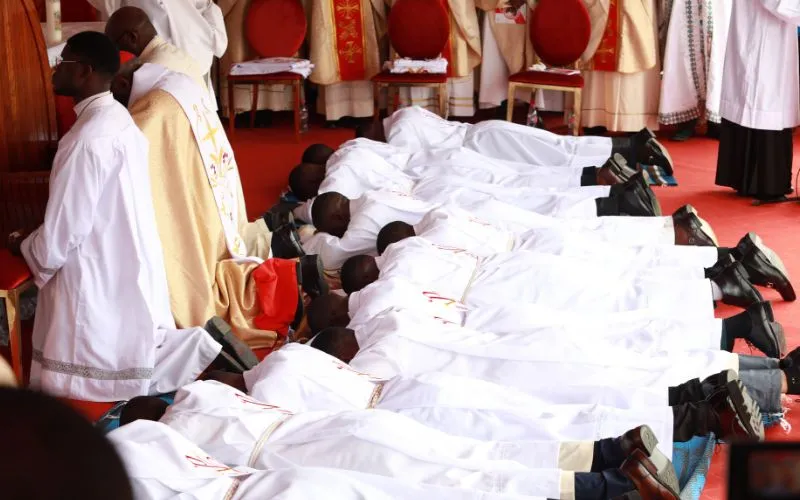 Credit: ACI Africa
Credit: ACI Africa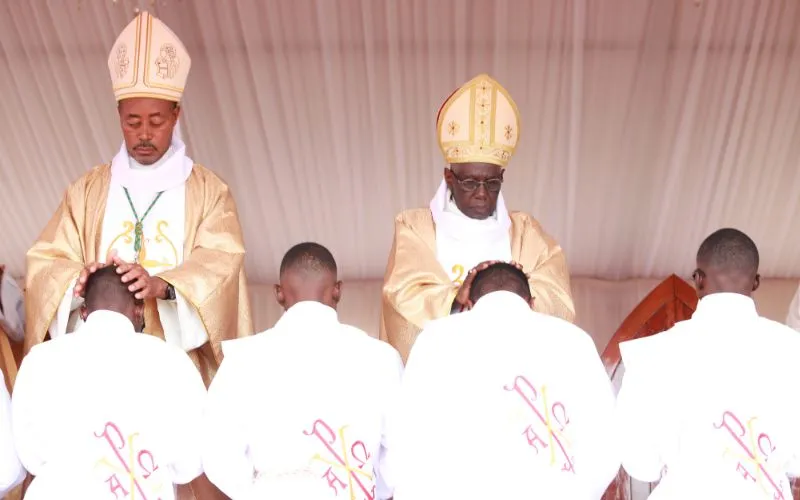 Credit: ACI Africa
Credit: ACI Africa

















25, July 2024
CWA Diamond Anniversary in Buea: Archbishop Nkea highlights successes in “great resilience” 0
Members of the Catholic Women Association (CWA) in Cameroon have, over the last six decades, manifested “great resilience” and hope, Archbishop Andrew Fuanya Nkea of the country’s Catholic Archdiocese of Bamenda has said.
In his Wednesday, July 24 homily during the celebration of the 60th Anniversary since CWA was established in Cameroon, Archbishop Nkea also acknowledged with appreciation women’s life of prayer, their perseverance, as well as their determination.
“You have taken an active part in the spiritual growth of the lives of the women in our church. You have worked hard to improve the condition of women and the girl child everywhere. You have done all within your powers to make your parishes and Christian communities true families of God,” he said during the celebration at the Divine Mercy Co-Cathedral of Cameroon’s Catholic Diocese of Buea.
As CWA member, he said, “you have worked hard for the preservation of family values and you have defended the authentic teaching of the Catholic Church on marriage and the family. You have contributed greatly to the formation of Priests in our local churches, either through financial contributions or by bringing materials, food, and other necessary items to our seminaries.”
“Women are creatures of great resilience and if women give up on something, it means there is no way for redemption. We see that no matter how bad a child is, the women never lose hope,” the Local Ordinary of Bamenda, who doubles as the President of the National Episcopal Conference of Cameroon (NECC) emphasized.
He continued, “Sometimes when men torment the women, they never lose hope. When society becomes hostile and even violent, women never lose hope.”
“This is a great virtue that we have seen in the women, especially during this time that we are going through a lot of difficulties in our regions of the Northwest, the Southwest, the Far North, and the east of Cameroon,” he said referring to the Anglophone crisis.
Archbishop Nkea continued, “In the current socio-political crisis that we are going through in the Northwest and the Southwest regions of Cameroon, the women remain the hope of this nation. It is the women who would save us through their prayers, perseverance, and determination to build fraternity again.”
“Women bring hope to the future. Women always give hope to the desperate and the hopeless. Women give hope when hope is lost,” he further said.
Archbishop Nkea went on to lament the situation in the Central African nation, saying, “Many things are happening in our country today which are not good. But it is you who will save this country.”
“There’s a lot of tension mounting in our country, around various regions for various reasons,” he said, and added, “Thanks be to God the Catholic Women Association exists in all the 10 regions of this country and practically all the 26 dioceses of this country.”
“Women, you are the ones to save this country,” he emphasized during the Eucharistic celebration that was presided over by the Apostolic Nuncio in Cameroon, Archbishop José Avelino Bettencourt.
The 58-year-old Catholic Archbishop, who started his Episcopal Ministry in August 2013 as the Coadjutor Bishop of Cameroon’s Mamfe Diocese encouraged CWA members in Cameroon to be “prophets, the ones to lead us from hopelessness to hope through your prayers and your witnessing.”
“Dear mothers of the church, you are ambassadors of hope to our society, and you have become ambassadors of hope through the painful experiences and the sufferings that many of you have gone through,” the Archbishop of Bamenda said.
He added, “You have been prominent in all occasions of the Church from Episcopal or Priestly ordinations to final professions of Religious men and women, and any other occasions that are organized by the church at any level. You have promoted the Marian spirituality and you have done your best to imitate the virtues of the Blessed Virgin Mary, who is your mother and your model.”
“May God bless you abundantly, forever and ever,” Archbishop Nkea implored.
CWA Cameroon was founded in 1964 under the initiative of Mrs. Anna Foncha with the ecclesiastical approval of the then Local Ordinary of Buea, Bishop Jules Peeters.
Starting off as a small group of women, CWA in Cameroon has grown to about 20,000 registered women all over Cameroon. The association exists in many other parts of the globe.
In his remarks during the event, the Apostolic Nuncio in Cameroon recognized the vital role of CWA in the Church.
“You are important; you are the heart of the Church; you are the arms of the Church,” Archbishop Bettencourt told CWA members in Cameroon on July 24.
Source: aciafrica